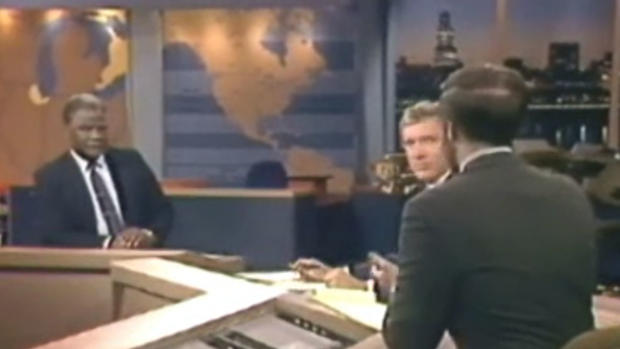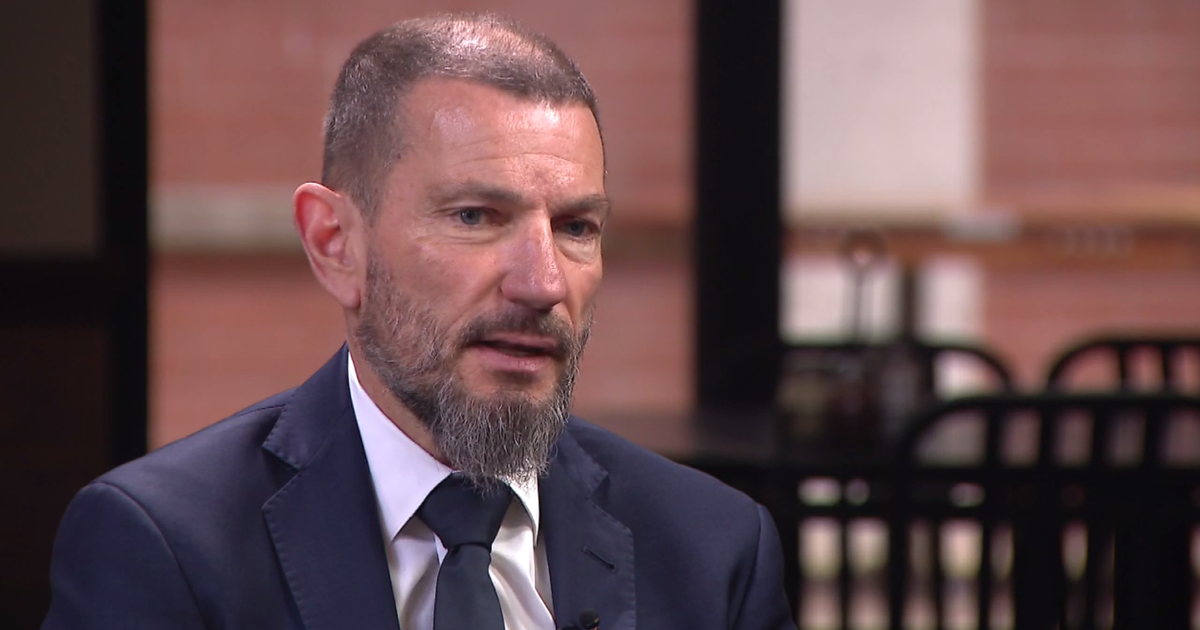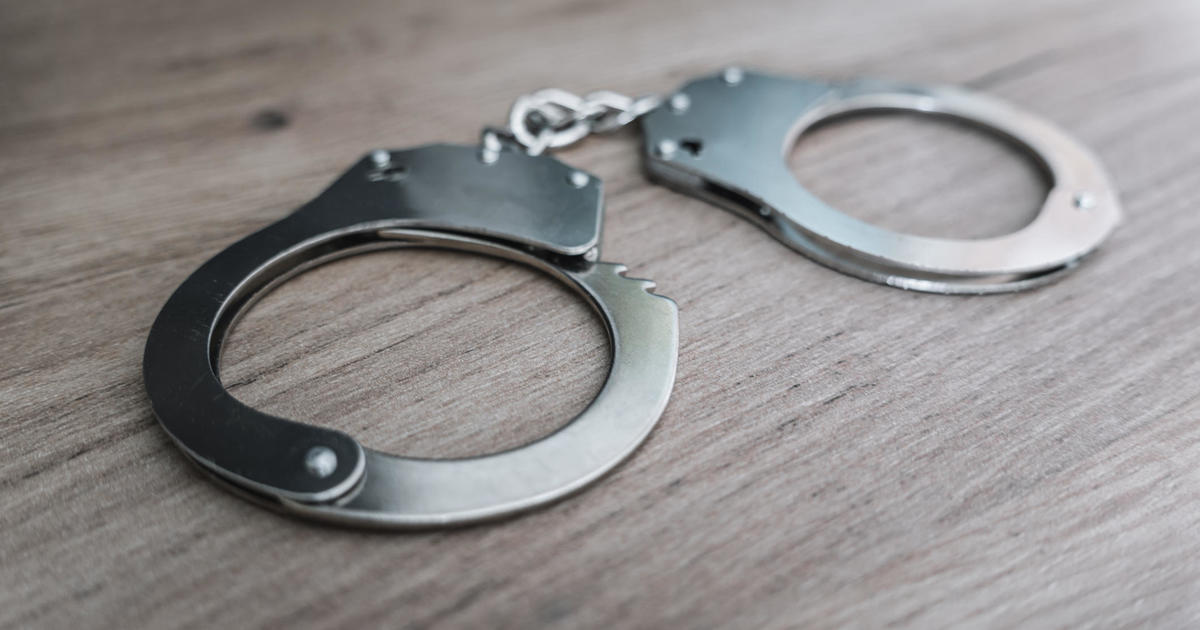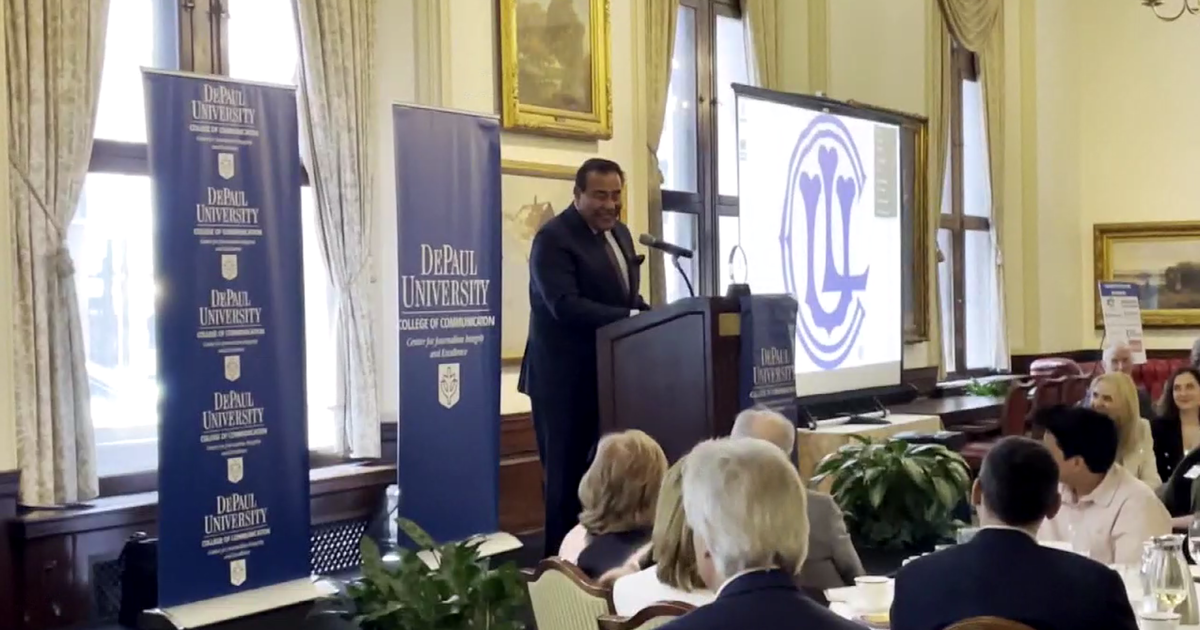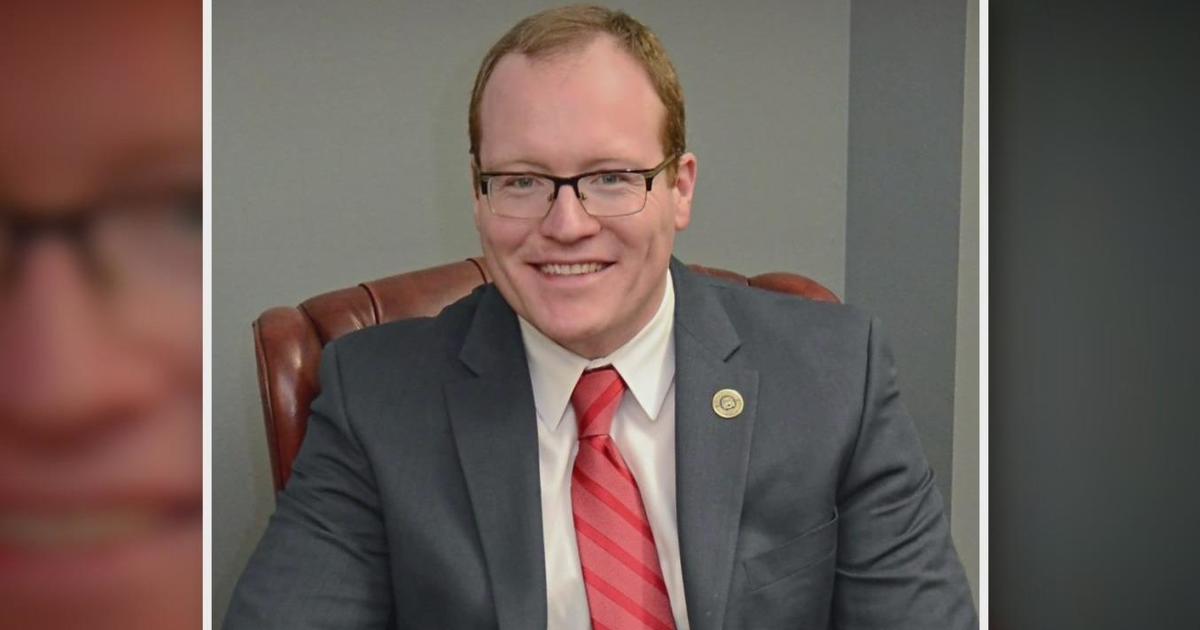CBS 2 Vault: Mayor Harold Washington Reflects On His First 100 Days In Office In 1983
CHICAGO (CBS) -- Last week, Mayor Lori Lightfoot marked the milestone of 100 days in office.
Here from the CBS 2 Vault is a look back 36 years ago, to the summer of 1983, when Mayor Harold Washington reached the same milestone. To discuss his own progress and goals, Mayor Washington sat down at the anchor desk on CBS 2's working newsroom set in our old building at 630 N. McClurg Ct., with CBS 2 anchorman Don Craig and Political Editor Mike Flannery.
Washington had defeated incumbent Jane Byrne and then-Cook County State's Attorney Richard M. Daley in a three-way primary in February of that year. In the general election, Washington was pitted against Bernard Epton a relatively unknown Republican Illinois State representative – in a divisive and hostile contest in which 90 percent of white voters in Chicago, including ward bosses, turned their back on the Democratic Party.
Both candidates had said they hoped race would not be a key issue, but some of Epton's supporters made certain that it was. Hate literature was distributed in neighborhoods on the Northwest and Southwest sides, in some cases by police officers. A slogan in one of Epton's campaign commercials was "Epton for Mayor, Before It's Too Late."
Ultimately, on Election Day 1983, voter turnout was estimated at 88 percent an hour before the polls closed. Washington won the election by 3.3 percent, and was declared the winner around midnight. A coalition of African-Americans, Latinos and predominantly white "lakefront liberals" living from Rogers Park south to Streeterville joined together to push Washington over the edge.
Washington was elected Chicago's first African-American mayor on April 12, 1983, and he was inaugurated on April 29.
But the hostility persisted – this time right in City Council chambers. As soon as Washington got into office, Ald. Ed Vrdolyak (10th) led a group of 29 aldermen – all but one white – that were allied to the old Democratic machine, compared with 21 who sided with the mayor.
The "Vrdolyak 29" blocked Washington's legislative and appointments. Shouting matches broke out on the council floor.
A hundred days after Washington took office – and amid what were known as the Council Wars – CBS 2's Craig asked the mayor whether the people of the city were better off now that he was mayor.
"Oh, definitely," Washington said. "For several reasons. One, I think they've seen a look at government they've wanted, anticipated, never got – now they're getting it. Two, I think the controversy and the things we've done that opened people's eyes as to what can be done. Three, I think they have, for the first time in my lifetime a legislative body named the Council which is working. They have a mayor who is living up to his responsibility as a chief executive and trying to work with the Council, and the concept of separation of powers – not antagonistically, but in terms of oversight and accountability."
The results of a CBS 2/Chicago Sun-Times news poll at the time still showed a racial divide when it came to approval of Washington's job performance – with only 18 percent of white voters expressing approval compared with 64 percent of black voters. Some white Chicagoans who spoke to CBS 2 were still expressing anxiety about the possibility of racial change in their neighborhoods.
Mayor Washington expressed that he had campaigned on ensuring that city services would be distributed evenly to every ward and neighborhood – and had already made good on that promise. He added that he was absolutely opposed to blockbusting or any kind of racial fearmongering that had resulted in white flight in prior decades.
Washington added that white racism was not going to stand in the way of doing his job – and seemed to take the Vrdolyak 29 to task without mentioning them by name.
"It has made it somewhat difficult not in terms of my programs; what we're supposed to do. It has made it difficult in formulation of the City Council," Washington said.
Meanwhile, community leaders told CBS 2 that in Chicago in 1983, jobs and unemployment were the greatest concern throughout every corner of the city.
During his campaign, Mayor Washington had promised to make efforts to create 10,000 jobs. But 100 days later, some were displeased that the mayor had yet to unveil his economic development plans to provide jobs through private business. On top of that, the city was laying off employees.
Mayor Washington told Craig and Flannery that he'd made it clear from the beginning that the city would need to lay off employees – because before Washington took office, Mayor Byrne had gone over budget and had hired people "for political purposes." Washington also emphasized the need to "balance the distribution of jobs equitably and fairly" – for example, holding a lottery for summer youth employment rather than just having people arbitrarily picked.
But Washington reminded everyone that neither he nor President Ronald Reagan or any other elected official could wave a magic wand and resolve the issue of unemployment. Washington said his plan was to use the city's assets in planning, economic development, housing, and training to retain jobs and attract investment that would bring more.
On another front, the CBS 2/Chicago-Sun-Times poll showed that 35 percent of respondents approved of how Washington was handling the Council Wars, while 43 percent disapproved and 21 percent had no opinion.
The deadlock in the City Council began making headlines beyond Chicago, and came to overshadow everything else that was happening in Chicago municipal government at the time.
"The 29 not only blocked his appointments, but never brought them up for consideration. They blocked most of his legislative initiatives, and dedicated an enormous energy to looking for ways to embarrass him; thwart him," host Ira Glass said in "Harold," in a 1997 episode of the public radio program "This American Life." "It was mayhem; a battle so divisive and chaotic that it sustained the animosity and suspicion between black Chicago and white Chicago for years."
At CBS 2, Washington emphasized that the Council Wars had not ground government to a halt. He said as of the summer of 1983, there had been only one occasion where the Council had blocked something "with malice aforethought" – when aldermen were supposed to come for a hearing on funding for the old annual ChicagoFest festival.
"Members of the Council didn't show up. Strange thing happened in the media – I was blamed because the Council didn't show up. I didn't elect these people. I don't pay them. They were AWOL. They didn't show up for work," Washington said. "But I was blamed for it."
Mayor Washington had also run on a platform of reform – saying he would not accept "business as usual" on any level in the city. On many fronts, Washington took action right away upon taking office.
Washington immediately agreed to the Shakman decree in U.S. District Court, which for all but a handful of positions prohibited political hiring or firing of city employees.
He also drafted an executive order on freedom of information for city government, so reporters could probe the deep, dark recesses of City Hall. He severely limited the amount of money that city contractors could contribute to a political fund, and helped open up the budget-making process.
Washington disputed the claim that his abolition of political hiring and firing, or patronage, had weakened his political power to get other reforms through.
"Patronage is dead. I've stomped on its grave, and I assure you it's not alive, and it's never going to be resurrected during the 20 years I'm in office. It's gone. People asked me to get rid of it overwhelmingly – more than 70 percent," Washington said at CBS 2. "Many people who didn't vote for me – probably never would vote for me – were opposed to the patronage system. It's gone."
The mayor eventually won Council Wars. Ward boundaries were changed by court order, and special elections were held in certain wards in 1986. The 25-25 split between supporters and opponents of Washington's policies allowed Washington to pursue his agenda unimpeded.
A year later, Washington was reelected, defeating former Mayor Byrne in the February primary, and winning 53 percent of the vote in the general election against Republican Donald Haider, and Vrdolyak, who had left the City Council and was running with the Illinois Solidarity Party. The hostility and racial tension that had divided the city four years earlier was not seen.
But on Nov. 25, 1987 – months into his second term – Mayor Washington was in his office talking with his press secretary, Alton Miller, when he collapsed at his desk at 10:58 a.m. The mayor was rushed to Northwestern Memorial Hospital, where doctors tried everything to get his heart pumping again. But Washington died at 1:36 p.m. that day, at the age of 65.
Ald. David Orr (49th) took over as interim mayor. After seven days that culminated in a contentious, wild City Council meeting, Ald. Eugene Sawyer (6th) was selected to finish Washington's term as acting mayor.
Sawyer in turn lost to Richard M. Daley in a special election in 1989. Daley went on to serve 22 years as mayor before retiring in 2011. Rahm Emanuel served two terms as mayor after that, before a surprise announcement that he would not seek reelection in 2019.
And just this year – after rising to the top of a crowded field and handily topping Cook County Board President Toni Preckwinkle in a runoff – Lori Lightfoot took office as Chicago's 56th mayor, as well as the city's first African-American woman mayor and first openly gay mayor.
In her inauguration speech in May of this year, Lightfoot said: "Most importantly, thank you to the people of Chicago, who had the courage to put their faith in a newcomer and the optimism to join this moment. We stand today at a time of great hope and possibility. And I can't help but feel the spirit of the great Mayor Harold Washington here with us this morning."
